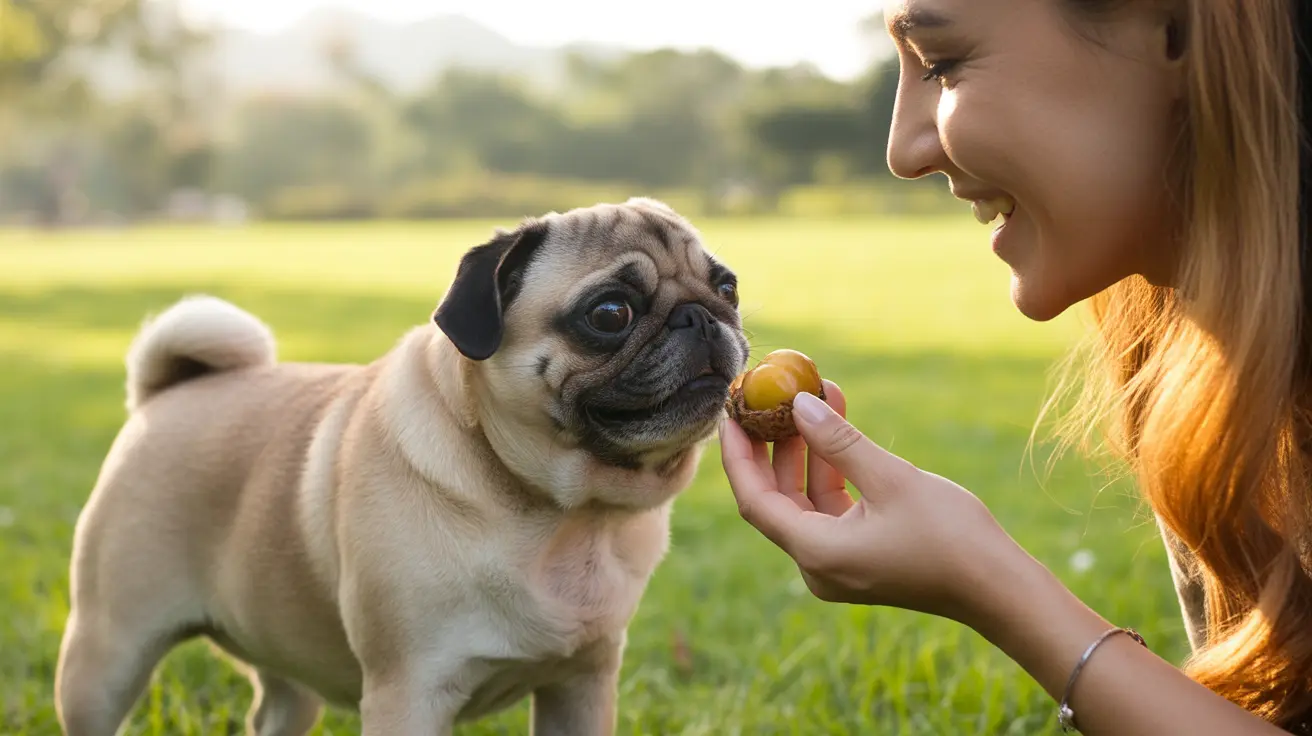As pet owners explore diverse food options for their furry friends, questions about exotic fruits like longan often arise. This comprehensive guide examines whether dogs can eat longan, what risks exist, and how to safely handle this tropical fruit if you choose to share it with your canine companion.
While longan fruit flesh is technically non-toxic to dogs when properly prepared, there are several important considerations and potential risks that every pet owner should understand before offering this treat.
Understanding Longan Fruit
Longan, also known as "dragon's eye," is a tropical fruit related to lychee and rambutan. The fruit consists of a thin brown shell surrounding translucent white flesh and a dark seed in the center. While prized in human diets for its sweet taste and nutritional content, its suitability for dogs requires careful consideration.
Safety Considerations for Dogs
The flesh of longan fruit can be safely consumed by dogs in small amounts, but only when properly prepared. However, several parts of the fruit pose significant risks:
The Shell and Pit
- Must always be removed before feeding
- Present serious choking hazards
- Can cause intestinal blockages if swallowed
- Seeds contain toxic compounds
The Flesh
- Should be given in minimal amounts
- Must be cut into small, manageable pieces
- Should only be offered occasionally
- Not suitable for puppies or dogs with sensitive stomachs
Potential Health Risks
While the flesh itself isn't toxic, longan can pose several health concerns for dogs:
- High sugar content can contribute to obesity and dental issues
- Excessive consumption may cause digestive upset
- Risk of choking on improperly prepared pieces
- Possible allergic reactions in sensitive dogs
Safe Feeding Guidelines
If you decide to offer longan to your dog, follow these essential safety measures:
- Remove all shell and seed components completely
- Cut the flesh into small, manageable pieces
- Limit portions to 1-2 small pieces per serving
- Monitor your dog while eating
- Introduce slowly to watch for adverse reactions
Better Alternatives for Dogs
Instead of longan, consider these safer fruit options for your dog:
- Blueberries
- Seedless watermelon
- Apple slices (without seeds)
- Bananas
- Strawberries
When to Contact Your Vet
Seek immediate veterinary attention if your dog shows any of these symptoms after consuming longan:
- Difficulty breathing or choking
- Vomiting or diarrhea
- Lethargy or weakness
- Signs of intestinal blockage
- Unusual behavior or distress
Frequently Asked Questions
Can dogs safely eat the flesh of longan fruit, and how should it be prepared?
Yes, dogs can safely eat longan flesh in small amounts, but it must be completely separated from the shell and pit, and cut into small pieces. Only offer it occasionally as a treat.
What are the risks if my dog eats longan seeds or shells?
Longan seeds and shells pose serious choking hazards and can cause intestinal blockages. The seeds also contain toxic compounds that could cause vomiting, lethargy, and other serious symptoms. Seek immediate veterinary care if your dog consumes these parts.
Why is longan fruit not recommended as a regular treat for dogs despite being safe in small amounts?
Due to its high sugar content, potential choking hazards, and the risk of digestive issues, longan isn't ideal for regular treating. There are many safer, more nutritious alternatives specifically suitable for dogs.
What symptoms should I watch for if my dog accidentally ingests longan pits or shells?
Watch for signs of choking, difficulty breathing, vomiting, diarrhea, lethargy, abdominal pain, or unusual behavior. If you notice any of these symptoms, contact your veterinarian immediately.
Are there safer fruit alternatives to longan I can give my dog as treats?
Yes, safer alternatives include blueberries, seedless watermelon, apple slices (without seeds), bananas, and strawberries. These fruits are generally well-tolerated by dogs and offer beneficial nutrients with fewer risks.
Remember, while dogs can technically eat longan flesh in moderation, the risks often outweigh the benefits. Consider sticking to traditional dog treats or vet-approved fruits instead.






